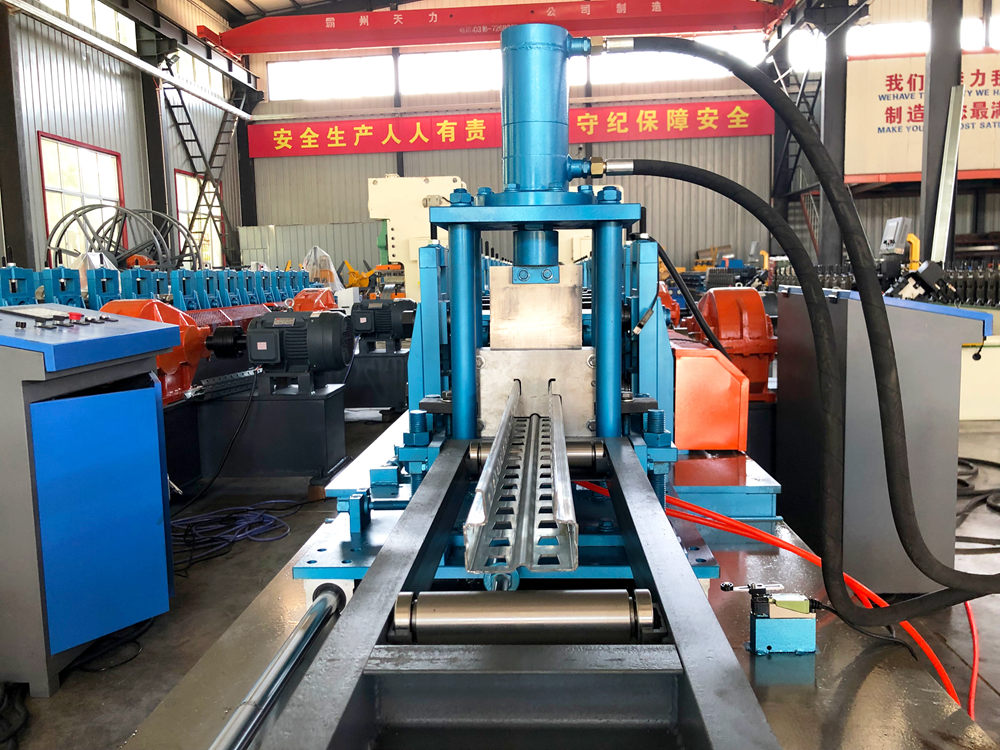
Understanding Stud Forming Machines A Key Element in Modern Manufacturing
In the rapidly evolving world of manufacturing, the demand for efficiency, precision, and versatility is paramount. One of the unsung heroes in this landscape is the stud forming machine. These machines play a crucial role in producing fasteners, specifically studs, which are essential components used across various industries, including automotive, construction, and electronics. This article delves into the workings, applications, and advantages of stud forming machines.
What is a Stud Forming Machine?
A stud forming machine is a specialized piece of equipment designed to transform raw materials, typically metal rods, into high-quality studs. These studs can come in various shapes and sizes, depending on their intended application. The forming process involves several steps, including cutting, deforming, and shaping the metal to create a finished product that meets stringent specifications.
The machine operates through a series of automated steps which include feeding the raw material, cutting it to the desired length, and then forming it into the final shape using a combination of dies and mechanical force. This automation not only speeds up production but also ensures a high degree of accuracy, which is vital in sectors where precision is critical.
Applications of Stud Forming Machines
Studs are omnipresent in our daily lives, though often unnoticed. In the automotive industry, they are used to secure various components together, from engines to chassis. In construction, they are vital in securing structural elements. Electronics manufacturers rely on studs for various fastening applications to ensure devices are assembled securely.
One significant advantage of stud forming machines is their ability to produce a variety of fasteners with different material characteristics. For instance, studs can be made from stainless steel for corrosion resistance or from high-strength alloys for applications where durability is essential.

The Advantages of Stud Forming Machines
1. Efficiency Automated stud forming machines significantly reduce the time and labor required to produce fasteners. The entire process, from cutting the raw material to the final inspection, can often be completed in a matter of seconds. This efficiency translates into lower production costs and quicker turnaround times for manufacturers.
2. Precision The ability to produce studs with incredibly tight tolerances means that parts fit together as designed, reducing waste and ensuring the integrity of the final product.
3. Versatility Modern stud forming machines can be programmed to produce a wide range of stud designs, accommodating various industry specifications. This flexibility allows manufacturers to respond quickly to changing market demands without needing extensive retooling.
4. Reduced Material Waste The precision of stud forming machines helps minimize waste by ensuring that only the necessary amount of material is used for each stud, which is both economically and environmentally beneficial.
5. Quality Control Most stud forming machines include integrated quality control systems that can detect defects during the manufacturing process. This capability ensures that only high-quality studs are produced and shipped to customers.
Conclusion
In conclusion, stud forming machines are an integral part of modern manufacturing processes, providing a blend of efficiency, precision, and versatility. Their applications span a wide range of industries, highlighting their importance in our everyday lives—even if their presence often goes unnoticed. As technology advances, these machines will continue to evolve, further enhancing production capabilities and driving innovation in fastener manufacturing. For businesses looking to improve their manufacturing processes, investing in high-quality stud forming machines can be a game-changer, paving the way for increased productivity and lower operating costs. As industries demand more sophisticated and reliable fastening solutions, stud forming machines will undoubtedly remain at the forefront of manufacturing technology.